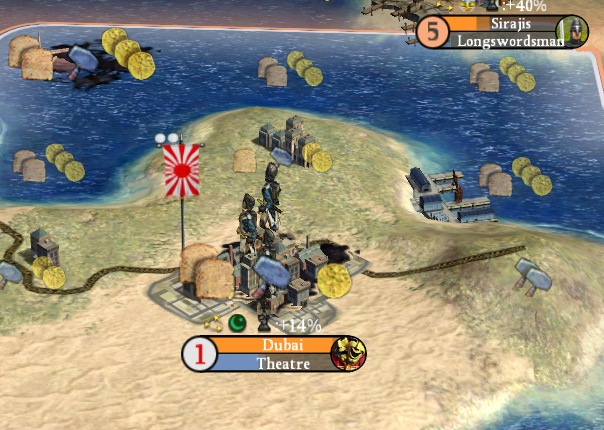It is the year 1800AD, and the dominance of the Qing over East Asia shall soon come to a swift and decisive end. However, the initial outlook of the final Sino-Japanese War seemed bright, as Qing forces prepared to finally retake Manchuria from the Japanese.
Unfortunately for him, Emperor Jiaqing apparently forgot that Japan was, in fact, a naval empire that was more than capable of mounting amphibious invasions, and the entire Qing army was forced to retreat to the capital to repel the invaders. Fortunately, Richard the Lionheart, who had since acquired the secrets of infinite life from the nearly-5000-year-old Hammurabi (now the Sultan of Baghdad), mistook the Japanese for Jews, and destroyed them in a fit of anti-Semitic rage.
The Qing troops immediately headed back north towards Manchuria, and before long had severely weakened the capital of Manchukuo.
After over a decade of war, the Qing finally reconquered their homeland and gave the former Botankou the uniquely Chinese name of Mudanjiang.
With their last significant colony gone, the Tokugawa Shogunate had no choice but to accept a humiliating defeat, and would be forced to pay an annual tribute to the Qing in exchange for peace. Manchukuo was no more.
But then...
With the Qing occupied with Manchuria, a Mongolian secessionist movement had begun to take hold in the city of Yinchuan, which consisted of nearly 40% ethnic Mongols. Jiaqing was too preoccupied to notice, and by 1815, the governor of Xinjiang province approached the Qing court with a series of demands: partial autonomy for the Mongolians in the northern Qing empire, or war. Jiaqing, realizing he could not afford another military conflict, succumbed to the demands, and the Tributary Meng Autonomous Region of Mongolia was born.
Surprisingly this ushered in a new era of peace, and for 25 years the Qing court enjoyed prosperity through their tribute agreements with Japan and Mongolia and the securing of the northern border. However, as Jiaqing neared old age, a series of disasters struck that would prove to be the end of the Chinese Empire once and for all. First, workers in the mines of Mandelei, obsessed with a new philosophy from the west known as "Communism", rejected the old imperial order, and formed the Most Glorious Democratic People's Republic of Burma, declaring their unilateral independence in the Spring of 1840.
Enraged and nearing senility, Emperor Jiaqing fielded an army of nearly 100 million troops to retake the tiny mining town. Unfortunately, just as this absurdly large force had left the capital, a catastrophe the likes of which had never before been seen on Earth befell the Empire, and East Asia would never be the same again.
Dutch scientists had long warned that celestial objects poised a significant threat to Earth, and records show that they sent numerous envoys to the Chinese to share their findings. However, the Emperor had always regarded such conclusions as heresy, arguing that the heavens had chosen his divine rule and would never conspire against him. Summarily, every envoy was executed via the Nicolas Cage Method, and the Dutch were informed that they died in a series of bizarre "Pagan rituals". Nevertheless, the Qing Emperor's confidence and devotion to the mandate of heaven proved to be futile, when in 1845 a meteor hundreds of miles across slammed into the East China Sea, with disastrous results for the Qing Empire. The massive chunk of rock completely obliterated the eastern seaboard of China and most of Korea, killing off 70% of China's population and wiping the Qing court in Beijing off the face of the Earth. As a pretender government scrambled to take control of Mudanjiang, what else remained of the Qing Empire quickly collapsed into a series of warring city states and fiefdoms, reminiscent of the remains of the vast Russian and French states that had collapsed years earlier. Although life in East Asia would continue, it would no longer be under the guise of Empire; instead, people would be forced to work together for the common good, as what had once been the most fertile land in the world was reduced to a cesspool of ash, mud, and fire. The Chinese Empire, with all of its rich history and tradition, had come to an end.









 . Great story update though
. Great story update though ! Nice map, by the way (Love your use of them, they really bring the story historical flavor)
! Nice map, by the way (Love your use of them, they really bring the story historical flavor)















 What did I just read?
What did I just read?
